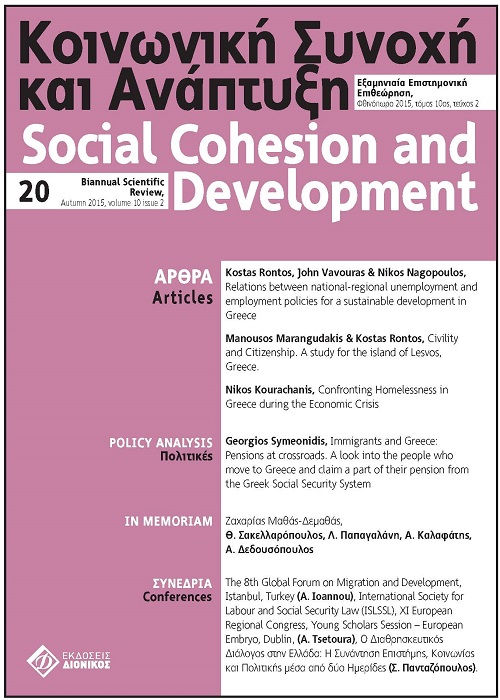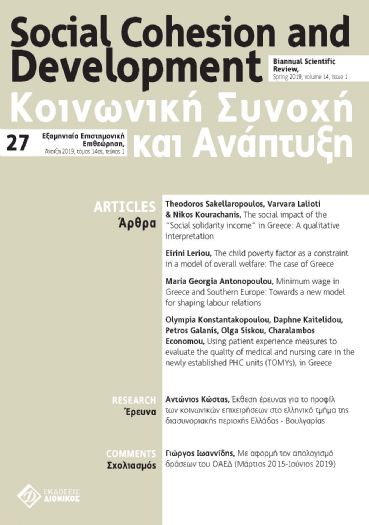Confronting homelessness in Greece during at time of crisis
Abstract
This article attempts to examine the policies for confronting homelessness in Greece during the crisis. The thesis proposed is that, regardless of the signs of a significant deterioration in the problem of homelessness, a range of policies has been developed that focus on the management of its most extreme and publicly visible manifestations. Social interventions are inadequate, fragmented, repressive in their nature, and with a strong emphasis on charity. This can be seen in the emphasis given to developing emergency services centered on in-kind provisions. The main burden of implementing these services is mainly borne by civil society, with extensive non-state fund-raising to supports its activities. This fact entails wider connotations for the “new” form of social policy that is emerging.
Article Details
- Zitationsvorschlag
-
Kourachanis, N. (2016). Confronting homelessness in Greece during at time of crisis. Social Cohesion and Development, 10(2), 113–129. https://doi.org/10.12681/scad.9976
- Ausgabe
- Bd. 10 Nr. 2 (2015)
- Rubrik
- Articles

Dieses Werk steht unter der Lizenz Creative Commons Namensnennung - Nicht-kommerziell - Weitergabe unter gleichen Bedingungen 4.0 International.
Authors who publish with this journal agree to the following terms:
- Authors retain copyright and grant the journal right of first publication with the work simultaneously licensed under a Creative Commons Attribution Non-Commercial License that allows others to share the work with an acknowledgement of the work's authorship and initial publication in this journal.
- Authors are able to enter into separate, additional contractual arrangements for the non-exclusive distribution of the journal's published version of the work (e.g. post it to an institutional repository or publish it in a book), with an acknowledgement of its initial publication in this journal.
- Authors are permitted and encouraged to post their work online (preferably in institutional repositories or on their website) prior to and during the submission process, as it can lead to productive exchanges, as well as earlier and greater citation of published work (See The Effect of Open Access).




